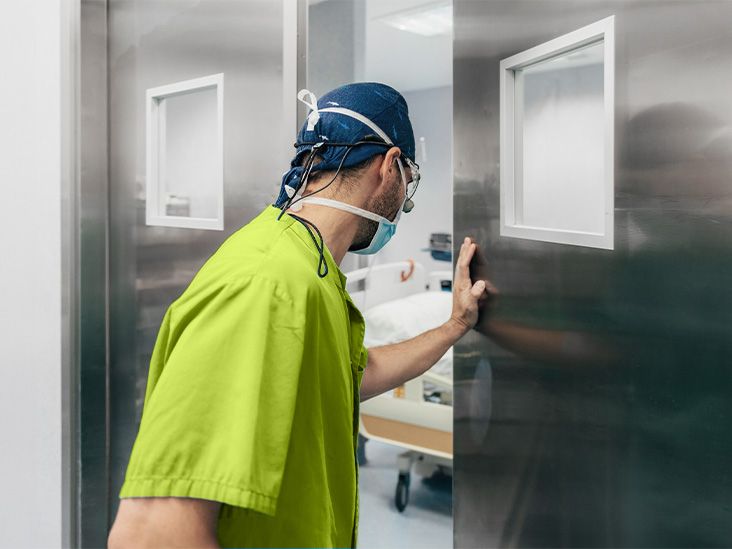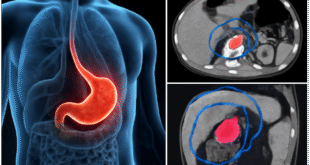Nghiên cứu mới đây cho biết phẫu thuật bypass dạ dày hiệu quả hơn phẫu thuật lược dạ dày đối với người mắc đái tháo đường loại 2. Khi lấy lại cân nặng, những người phẫu thuật bypass dạ dày ít có khả năng tái phát đái tháo đường hơn. Kết quả cho thấy 75% người phẫu thuật bypass duy trì việc kiểm soát đái tháo đường, so với chỉ có 34% trong nhóm phẫu thuật lược dạ dày.

Gastric bypass surgery is more effective than gastric sleeve surgery in achieving long-term remission for type 2 diabetes, according to a recent study conducted by researchers from the Mayo Clinic in Minnesota. The study, published in the Journal of the American College of Surgeons, found that individuals who undergo gastric bypass surgery are significantly less likely to experience a recurrence of their diabetes, even if they regain weight.
The researchers examined the medical records of 224 participants who had undergone gastric bypass surgery at the Mayo Clinic between 2008 and 2017, as well as the records of 46 individuals who had received a gastric sleeve procedure. All participants had been diagnosed with obesity and type 2 diabetes prior to their surgery. The study followed the participants for at least five years post-surgery to evaluate the impact of weight gain on the recurrence of diabetes.
The findings of the study revealed that gastric bypass surgery resulted in high rates of type 2 diabetes remission even for individuals who regained a significant amount of weight. Participants who received a gastric sleeve were 5.5 times more likely to experience a recurrence of their diabetes compared to those who had undergone gastric bypass surgery. Additionally, among those who regained their weight after gastric bypass surgery, approximately 60% still maintained long-term remission of their diabetes, while no participants in the gastric sleeve group achieved the same outcome.
The study also identified that insulin use, higher A1C levels prior to surgery, and a longer preoperative duration of diabetes were more closely associated with the recurrence of diabetes than weight regain. Gastric bypass surgery involves reducing the size of the stomach and rerouting the upper part of the small intestine, while gastric sleeve surgery reduces the size of the stomach without rerouting the small intestine like a gastric bypass procedure.
Although weight regain was not directly linked to type 2 diabetes remission, the researchers emphasized its significance. They believe that the small intestine plays a crucial role in managing diabetes, as evidenced by the fact that participants who regained weight after gastric bypass surgery continued to experience remission of their diabetes. Dr. Omar Ghanem, a metabolic surgeon at the Mayo Clinic and one of the study authors, stated, “These surgeries should still be considered the gold standard for type 2 diabetes therapy in patients with obesity.”
The study’s findings support the idea that bypassing the duodenum, a portion of the small intestine associated with the pancreas, has a powerful effect on diabetes and metabolism. Dr. Mir Ali, a bariatric surgeon not involved in the study, commented that the results were not surprising, as rerouting the intestine during gastric bypass surgery affects the duodenum. He also emphasized that weight loss surgery should be viewed as a tool to develop new habits and better manage diabetes.
While the study had limitations, such as relying on previous research and lacking information on lifestyle factors and other behaviors that impact the severity of type 2 diabetes, the researchers believe that their findings can serve as a foundation for future studies on the recurrence of type 2 diabetes after bariatric surgery.
In conclusion, gastric bypass surgery has been found to be more effective than gastric sleeve surgery in maintaining long-term remission for type 2 diabetes, even if individuals regain weight. The study highlights the importance of considering the role of the small intestine in managing diabetes and supports the use of gastric bypass surgery as a gold standard treatment for type 2 diabetes in individuals with obesity. Further research is needed to explore the factors contributing to diabetes recurrence after bariatric surgery.
Hỏi đáp về nội dung bài này
1. Nghiên cứu này cho thấy phẫu thuật điều chỉnh dạ dày (gastric bypass) có hiệu quả hơn phẫu thuật cắt dạ dày (gastric sleeve) đối với người mắc đái tháo đường loại 2. Bạn có thể cho biết kết quả chi tiết của nghiên cứu này không?
– 75% người đã phẫu thuật điều chỉnh dạ dày (gastric bypass) đã thấy đái tháo đường của họ không tái phát, so với chỉ có 34% người trong nhóm phẫu thuật cắt dạ dày (gastric sleeve) thấy đái tháo đường không tái phát.
2. Phẫu thuật điều chỉnh dạ dày có ảnh hưởng gì đến việc kiểm soát đái tháo đường loại 2 không?
– Phẫu thuật điều chỉnh dạ dày giảm kích thước dạ dày và chuyển hướng phần trên của ruột non – tạng bài tiết tiểu đường. Điều này khiến cho phẫu thuật điều chỉnh dạ dày có hiệu quả hơn trong việc kiểm soát đái tháo đường loại 2 so với phẫu thuật cắt dạ dày.
3. Những yếu tố nào ảnh hưởng đến việc tái phát đái tháo đường sau phẫu thuật điều chỉnh dạ dày?
– Việc sử dụng insulin, mức A1C cao và thời gian mắc đái tháo đường trước phẫu thuật lâu hơn có liên quan mật thiết đến việc tái phát đái tháo đường sau phẫu thuật điều chỉnh dạ dày. Trong khi việc tăng cân lại không có liên quan trực tiếp đến việc tái phát đái tháo đường.
4. Phẫu thuật điều chỉnh dạ dày và phẫu thuật cắt dạ dày có gì khác biệt về cơ chế tác động đến đái tháo đường loại 2?
– Phẫu thuật điều chỉnh dạ dày làm giảm kích thước dạ dày và chuyển hướng phần trên của ruột non – tạng bài tiết tiểu đường, trong khi phẫu thuật cắt dạ dày chỉ làm giảm kích thước dạ dày mà không chuyển hướng ruột non. Do đó, phẫu thuật điều chỉnh dạ dày có hiệu quả hơn trong việc kiểm soát đái tháo đường loại 2.
5. Tại sao việc tăng cân lại không ảnh hưởng trực tiếp đến việc kiểm soát đái tháo đường sau phẫu thuật điều chỉnh dạ dày?
– Mặc dù việc tăng cân lại không ảnh hưởng trực tiếp đến việc kiểm soát đái tháo đường, nhưng nghiên cứu cho thấy việc tái phát đái tháo đường sau phẫu thuật điều chỉnh dạ dày có thể xảy ra. Tuy nhiên, người ta tin rằng ruột non đóng vai trò quan trọng trong quá trình kiểm soát đái tháo đường, cho nên phẫu thuật điều chỉnh dạ dày vẫn được coi là phương pháp điều trị tiêu chuẩn cho đái tháo đường loại 2 ở người béo phì.
Nguồn thông tin được tham khảo từ trang web: medicalnewstoday, How gastric bypass surgery can help with remission
Nội dung được biên tập, sáng tạo thêm bởi: Ban biên tập Ykhoa. org
 Y khoa Diễn đàn Y khoa, y tế sức khoẻ, kiến thức lâm sàng, chẩn đoán và điều trị, phác đồ, diễn đàn y khoa, hệ sinh thái y khoa online, mới nhất và đáng tin cậy.
Y khoa Diễn đàn Y khoa, y tế sức khoẻ, kiến thức lâm sàng, chẩn đoán và điều trị, phác đồ, diễn đàn y khoa, hệ sinh thái y khoa online, mới nhất và đáng tin cậy.





